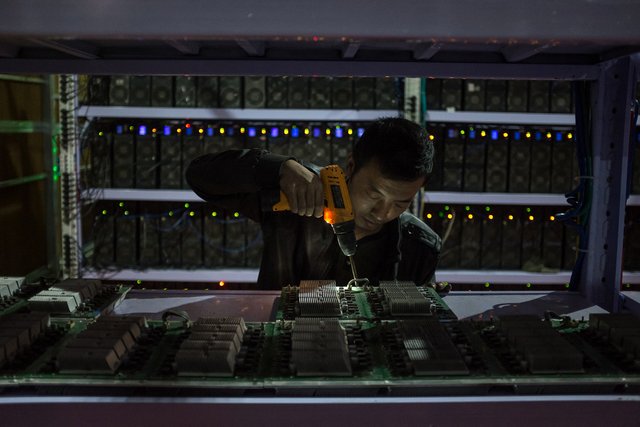Inside the world of Chinese bitcoin mining
The currency is booming as an investment asset and form of payment in China, Japan and South Korea. The value of bitcoin exceeded $12,000 in January.
China is one of the main exchange markets of bitcoin, although the currency exists in a legal limbo and is prone to speculation.
The country hosts some of the biggest "mining pools" in the world where clusters of supercomputers mint new bitcoins and maintain the system. Some of these supercomputers are installed in rural places close to power plants.
One such area is Sichuan, which has quietly become known as "the capital of bitcoin mining".
Entrepreneurial Chinese set up mines in the province due to its abundance of hydropower, perfect for the high energy needs of the computers required for bitcoin mining.
Bitcoin mines are buildings equipped with massive numbers of microprocessors where miners solve complex maths problems and are rewarded in the digital currency.
They are often built beside hydro-electric plants set up along mountain streams. These plants often produce more energy than they are able to sell to China's state grid, and some plant owners have found they can either sell the surplus to bitcoin mines or set up their own mines.
The industry operates in a legal gray area in China, outside the conventional Chinese financial system.
The miners in this story, concerned about attention from the government, declined to have their full names or work locations mentioned in the story. They live and work at the mine, which is so remote the nearest public transportation is 20 miles away, in the nearest town. Workers pay to hitchhike there once a week.
"The good thing is, there isn't anywhere to spend money, so you can save your whole salary," bitcoin miner Sun says.